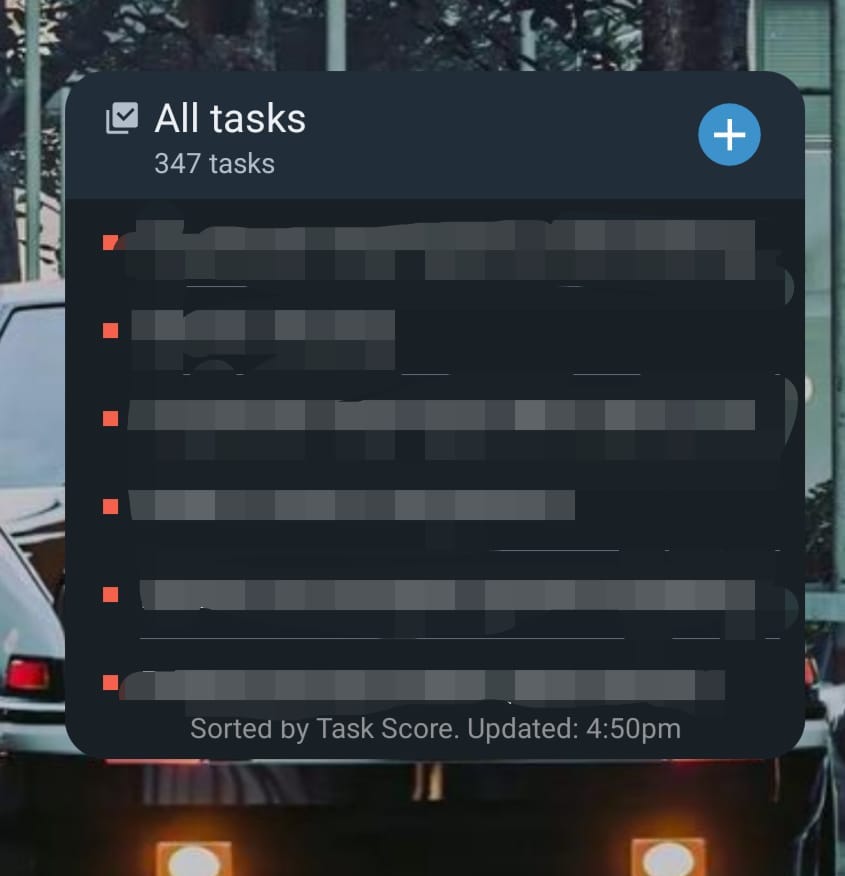How to choose which task to work on next
We're all drowning on infinite to-do lists and responsibilities, and yet we still think that we can complete all of them — or at least we hope so.
Stop being delusional thinking that getting more tasks done is the same as being more productive. It's not.
Think about it: when you complete a lot of tasks, are you really completing what moves the needle forward, or are you focusing on the wrong things?
Do what really matters
You probably believe that doing more tasks equals to being more productive, but it means nothing if you're not producing value from those tasks.
You have to understand that your to-do list will never be fully completed. There will always be 300 things that you could be doing at any given time that could be considered productive. If you're like me, you even have those 300 tasks saved in your task manager somewhere.
To choose what to do each day, you first need to decide which tasks are truly valuable to you.
Tasks that are valuable are those who align with your goals and will move your current projects forward. If you have the goal of being a writer, writing a draft for a blog or story would be a pretty important task in your list. However, spending 3 hours optimizing your task management workflow in Notion might not be the best use of your time.
If you need some more metrics to figure out what is important to you outside of "gut feeling", here are some measures you can use:
Do you need to deliver it soon? (especially helpful for college assignments and time-sensitive projects)
Does it increase revenue for your business?
Does it improve any of your areas of focus (health, finances, productivity, knowledge, etc)?
Is it enjoyable?
How to choose what to do next
After prioritizing the tasks that really matter to you, it's time to select which ones you'll work on now.
I personally prefer to plan out 20 tasks that I'll work on each month - 10 personal tasks and 10 work tasks. You might be thinking that I'm really inefficient to only do 20 tasks per month, but this number is low for a reason: it allows me to have quick wins.
My monthly task list is intentionally small. It allows me to finish it in one to two weeks, reducing decision fatigue and making it easier to focus on what truly matters. This not only helps me feel productive and motivated but also ensures that I make steady progress without getting overwhelmed by an endless backlog. Once all the tasks are done, I pick 20 more and complete them.
However, I don't look at all of those 20 tasks at once, or I'll feel like a snail wandering in circles, being slow and never going anywhere. Instead, I prefer to use the Ivy Lee method for daily planning: I select 6 tasks that I want to work on, prioritize them in the order of what's most important to be done at the moment, and do them from top to bottom. If you complete every task, pick more 6 tasks with the same priority criteria and work on them. If I don't complete everything, I push them to the top of the list for tomorrow and fill it with tasks until I have 6 tasks again.
I also prefer to do a split of 2 tasks for work and 4 tasks for uni/personal responsibilities, since I spend more time doing uni stuff than doing work stuff. You should change it to your needs, though.
You can do a split of 4 tasks for work and 2 tasks for your personal issues, or even 4 tasks for work, 1 task for personal responsibilities, and 1 task for your side projects/business.
With a small task list, It becomes much easier to focus on what can be done next and not feel overwhelmed by the sheer amount of things that I should be doing at any given time.
Conclusion
Knowing what to do next is an important step to getting your most important work done first. This will grant you more results while allowing you to work less overall. Do you already plan what you'll do each day? Let me know in the comments what's your usual strategy for it, and how it's working out for you!



Endless task lists can feel like drowning - i'm trying the same now. Just having one big goal for each day